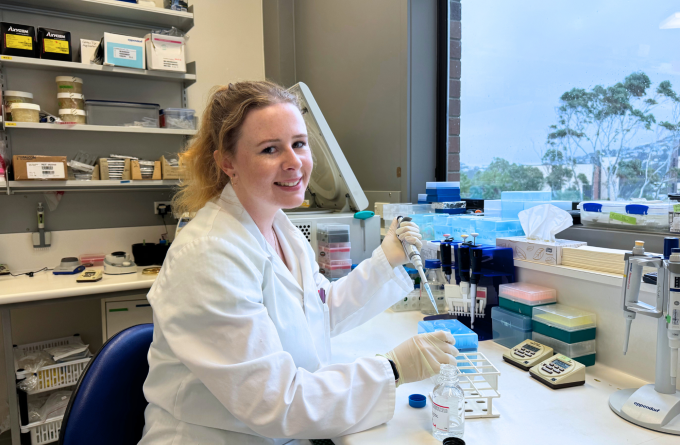7 July 2020
Can gut worms protect you from inflammatory diseases? Scientists have long suspected this is the case, and a recent paper published by the Malaghan Institute’s parasitic disease research team has provided some solid evidence for this long-held theory. In a first of its kind, Malaghan scientists have shown that gut worms can suppress dangerous inflammation in the skin.

“What this paper shows for the first time is that a gut parasite can actually suppress an inflammatory response in the skin,” says Professor Graham Le Gros, whose paper ‘The Gastrointestinal Helminth Heligmosomoides bakeri Suppresses Inflammation in a Model of Contact Hypersensitivity’ was recently published in Frontiers Immunology. The paper is another milestone in the Institute’s programme to understand how parasitic worms modulate the human immune system, and how this may be applied therapeutically to help people suffering from allergic and inflammatory diseases.
Previous publications by the hookworm team showed evidence that gut hookworms can provide inflammatory protection against other worms in different parts of the body, but whether these findings have a therapeutic effect was still to be determined. This recent paper supports that is indeed the case, at least in preclinical models, opening the door for future exploration.
“It’s quite remarkable,” says Prof Le Gros. ‘The skin and gut are miles apart, biologically-speaking, so to have a mild parasitic infection in the gut suppress the development of atopic conditions in the skin is very exciting.”
In order to survive in their host, parasitic worms have evolved mechanisms to avoid the host’s immune system and dampen down inflammatory responses designed to get rid of them from the body. Understanding how worms achieve this holds the potential for creating new therapies to manage harmful allergic and autoimmune conditions. In this instance, the paper found that gut worms were able to interrupt cellular signalling in the skin, preventing the recruitment of inflammation-inducing immune cells.
“We’ve identified that the parasite seems to be able to suppress the ability of neutrophils – a type of white blood cell – and its ability to get into the skin,” says Prof Le Gros. “It’s a novel mechanism that’s never been identified previously.”
The Malaghan Institute has recently started a clinical human hookworm study infecting healthy volunteers with a controlled dose of hookworm, monitoring how the worms influence their host’s health and immune system over the course of a year. In light of the Frontiers paper, the hookworm team have added an extra layer to this study; investigating whether the mechanisms seen in the paper translate to their human counterparts.
“We want to know if a human hookworm, in this case Necator americanus, acts in the same way we observed with Heligmosomoides bakeri,” says Prof Le Gros. “If so, this goes a long way to validate hookworms as a legitimate way to treat some terrible allergic conditions in the skin.”
Related articles

Fighting allergic skin disease at its root
17 December 2024

New research deepening understanding of elusive eosinophils
27 June 2024

International collaboration finds lipid imbalance in the skin may contribute to inflammatory conditions
24 June 2024

The ever-evolving world of immunology research
13 June 2024

Double doctor: exceptional thesis awarded to Malaghan gastroenterologist
5 June 2024

Double doctor: exceptional thesis awarded to Malaghan gastroenterologist
5 June 2024
